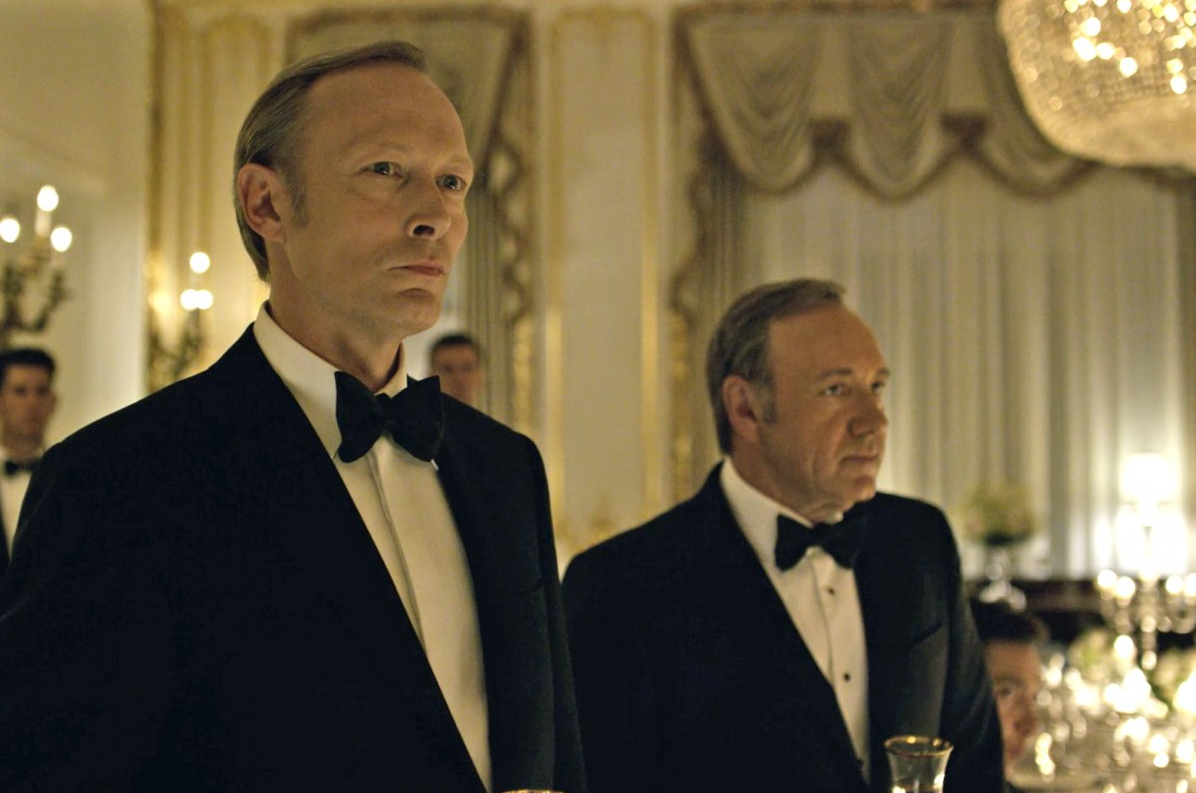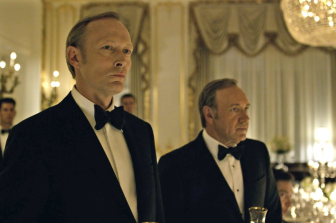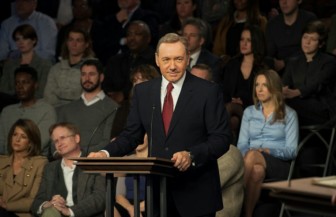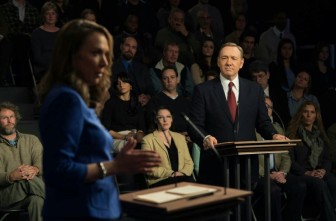
It only took Frank Underwood two seasons to usurp the presidency. All his work has finally lead up to season three of Netflix’s original series House of Cards. Frank is no longer a challenger attempting to overthrow the champion. He is the champion. And now it’s about maintaining power.

The main issue with Frank is his power-hungry philosophy, and his particularly dark track record rendered one of the most memorable, symbolic scenes of season three. After spitting on a statue of Jesus, the statue comes crashing down—shattering to pieces. The symbolism of this scene could not be more explicit: it is a loss of the little altruism and morality that was left in him.
But for all the manipulation, secrecy and murder that pave his path to the presidency, the question begs: What does he want? Given this season’s particular focus on international relations, could it be that Frank aims for world domination? It is not out of the realm of possibility in cutthroat the world of House of Cards.
Immediately after Frank takes office, he asserts his power by appointing his wife, Claire, as UN Ambassador. With the exception of a few murmurs by a few individuals of the press, the blatant nepotism is largely ignored. This is made worse by Claire’s lack of experience in global affairs, which strains U.S. relations with Russia.
The issue of Russia sheds light one of the series most interesting people: Viktor Petrov, President of Russia. Petrov is a clear caricature of Vladimir Putin, with his extreme arrogance that borders on recklessness. Of course, this portrayal of Petrov and his interactions with Frank bring in the show’s editorial with regards to similar situations occurring concurrently in real life.
While Putin’s caricature may not necessarily blur the lines between drama and real life, there is the concern that the show exhibits a lack of creativity—preferring to borrow from current events rather than designing its unique storyline. Still, season three largely focuses on international relations. Simply put, the United States’s international impact would not be complete without Russia’s involvement. Hence, the Petrov character is warranted. Given the show’s choice to focus on Russia’s involvement in the Middle East, Petrov serves as an outlet for the show to explore how Frank handles the delicate situation in the Middle East while having the added benefit of being able to editorialize the Putin situation in real life.
Overall, season three was weaker than its counterparts—favoring more transactional work rather than Frank’s cunning, which built the brutally entertaining foundation of the series. Both leads, Kevin Spacey and Robin Wright, showcased their consistent strength and dedication to their respective roles. However, the most notable of performances came from Michael Kelly, who plays Doug Stamper—Frank’s former Chief of Staff. As a recovering alcoholoic, his outward weaknesses contrasted with fierce determination in attempting to reclaim a position on Frank’s team is brilliantly played by Kelly, who captures subtle nuances in Doug’s inner adversity.
The later episodes of season three pick up steam, and like last season’s presidential predicament, Frank is working yet again for the seat, though this time he has genuine, fierce opposition. It is in these final episodes where the show truly shines in complexifying the storyline. As the rock by his side, Claire has been Frank’s greatest advocate. Yet straining the relationship could turn his greatest ally into his most adversarial enemy. It will be interesting to see how this dysfunctional relationship will impact Frank’s campaign in the future. But for now, season three ends on a relatively intriguing note, despite its slower start.







